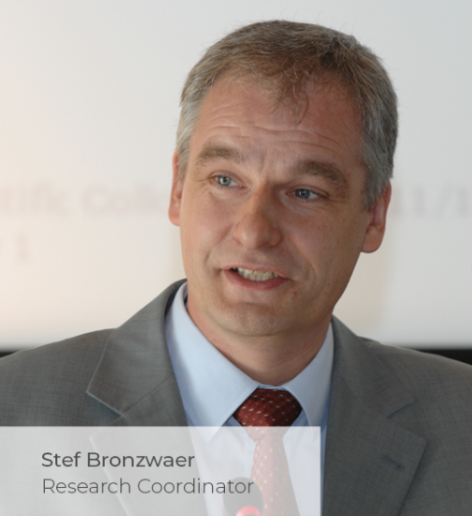Alisdair Wotherspoon FIFST and Rachel Ward, IFST’s Scientific Policy Director, explain the objectives of EFSA’s new report on food safety research needs and encourage IFST members to collaborate to address the priority areas identified in the report.
Last summer, EFSA published its ‘Food Safety Regulatory Research Needs 2030’1 The culmination of months of work, it involved wide consultation with its expert networks and committees, Member State contacts and EFSA conference participants.
The research needs in this important report are in 3 streams, each with 5 themes, presenting them in the context of the likely impact of meeting them:
- Safe food systems – improving food safety, while moving towards alternative and sustainable production systems;
- Innovation in risk assessment – anticipating impact of innovations and new technologies on integrated risk assessment;
- Holistic risk assessment – understanding the context and delivering and communicating impactful science.
EFSA, like many food safety authorities, has limited funds to undertake research and focuses, understandably, on more immediate, applied needs. Therefore, a key aim of this ambitious programme was to help inform others’ strategic research agendas, such as the upcoming Horizon Europe, proposals into programmes such as COST, and global partnerships addressing food safety (e.g. WHO/FAO, World Bank). It takes account of pertinent, wider, strategic thinking over recent years, both within the EU (e.g. Food2030, the 7th Environment Action Plan), and elsewhere (e.g. the UN SDGs).
The EFSA research needs recognise that food production is changing to meet consumer demands and the opportunities/challenges presented by complex global issues. New tools and technologies are being developed providing exciting opportunities but also previously unforeseen challenges, where the old risk assessment paradigms are not fit for purpose. Key to their successful implementation is avoidance of unintended consequences impacting public and environmental protection. They also acknowledge that the evidence base for the future will increasingly rely on more holistic, systems based and interdisciplinary approaches involving the natural, physical, data and social sciences. Consequently, the research priorities identified in the EFSA document are more holistic and cover the overall risk analysis framework, not just risk assessment.
Other key EU documents, such as the Lamy Report2 and the Tallinn Call for Action3 have highlighted the need for more alignment across EU/national research and innovation funding and better collaborative approaches, to more effectively meet the broad, complex (and expensive) research needs to achieve the desired impacts on consumer health and wellbeing. The call for better coordination was also voiced in an EFSA event, the Risk Assessment Research Assembly (RARA) in 20184. EFSA’s Advisory Forum (comprising heads of 35 national food authorities) supported this in an accompanying joint statement5.
EFSA therefore established a Research Platform6 to help act as a knowledge-broker between scientists and policy makers. It aims to support the wider food safety research community, pro-actively raising awareness (to researchers and funders) of funding opportunities, supporting project ideas and promoting consortia formation. This work is led by EFSA’s Research Coordinator, Stef Bronzwaer.

EFSA is now more active in regulatory research coordination, building on its wide expert pool and networks. One example is its involvement in the OneHealth EJP7 that mobilises significant resources to move towards a OneHealth approach on foodborne zoonoses, antimicrobial resistance and emerging risks.
An exciting opportunity to inform the future Horizon Europe research agenda also exists through the call FNR-08 (closes 22 January 2020): ‘Supporting the food safety systems of the future’ 8. Building on its work and networks, EFSA is ready to support any future consortium to establish a multi-partner research platform on food safety. This platform will set the basis for joint trans-national research programmes by aligning national research agendas and developing a coherent food safety Strategic Research and Innovation Agenda (SRIA). EFSA will organise its next RARA at the end of 2020 to coincide with the start of this future consortium, to give it a flying start.
Wider international cooperation in regulatory science is equally important as hazards do not confine themselves to borders. Regulatory agencies across the globe are represented in the Global Coalition for Regulatory Science Research (GCRSR), co-chaired by Bill Slikker from NCTR-FDA and Marta Hugas, EFSA’s Chief Scientist. The Coalition exchanges knowledge on important topics such as emerging technologies, bioinformatics, nanotechnologies, capacity building initiatives and research needs.
IFST warmly welcomes the EFSA needs document and the GCRSR as important contributors to research thinking in the food safety/food security area. We would strongly encourage active cooperation and collaboration across disciplinary, geographical and organisational borders to ensure a more integrated and effective approach to tackling the complex research challenges and opportunities presented in the food area.
Follow Stef Bronzwaer on LinkedIn (https://www.linkedin.com/in/stefbronzwaer/ and/or Twitter ( https://twitter.com/sbronzwaer) for daily updates on upcoming calls and research outcomes.
References:
- https://efsa.onlinelibrary.wiley.com/doi/10.2903/j.efsa.2019.e170622.
- http://ec.europa.eu/research/evaluations/pdf/archive/other_reports_studies_and_documents/hlg_2017_report.pdf
- https://www.hm.ee/sites/default/files/tallinn_call_for_action_2017.pdf
- http://www.efsa.europa.eu/en/events/event/180207
- https://www.efsa.europa.eu/sites/default/files/news/180206_rara_statement.pdf
- http://www.efsa.europa.eu/en/engage/research-platform
- https://onehealthejp.eu/
- https://ec.europa.eu/info/funding-tenders/opportunities/portal/screen/opportunities/topic-details/fnr-08-2020
.
